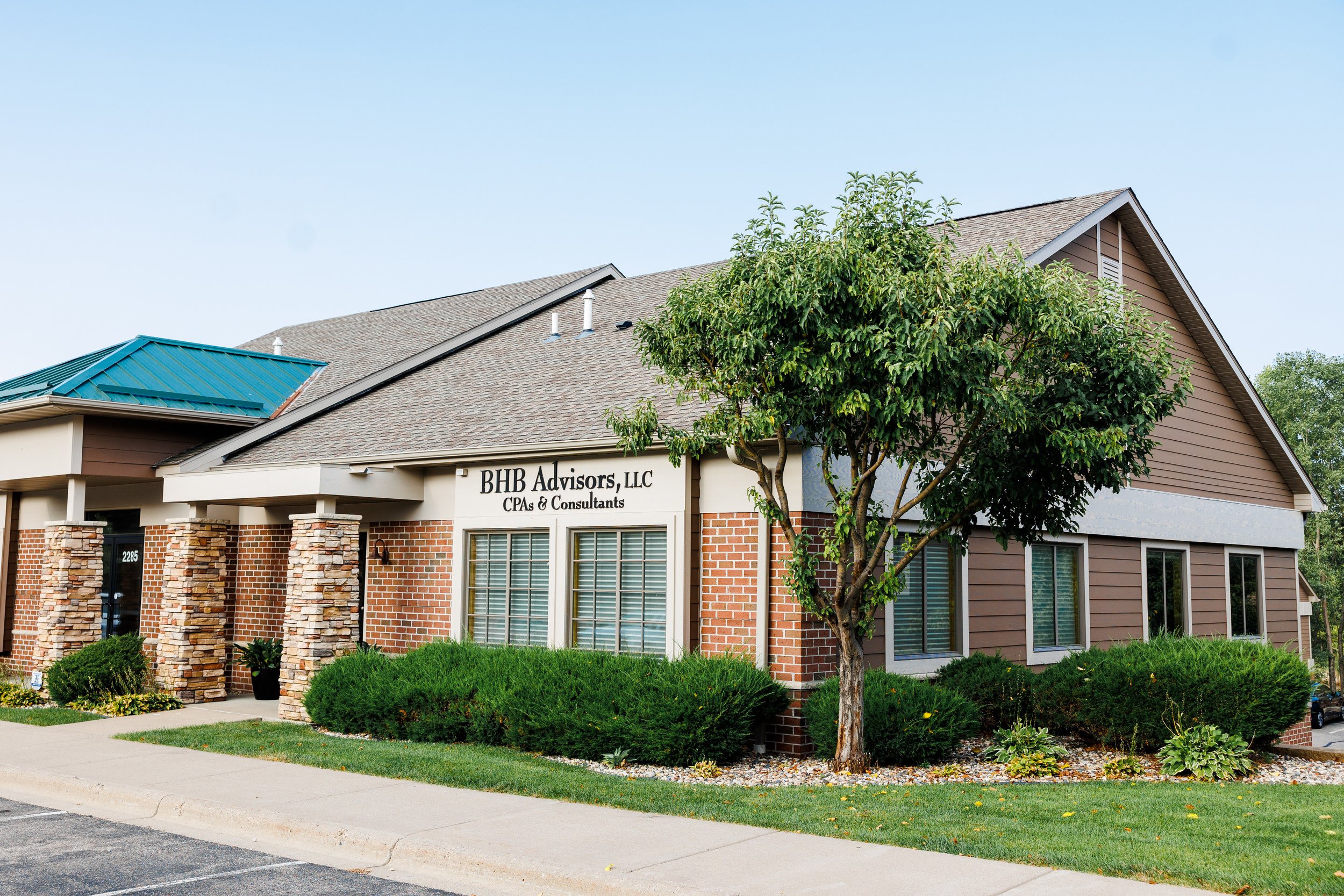
BHB Advisors, LLC is a full service tax advisory and accounting firm, specializing in both individual and business needs.
Our specialty is working with both individuals and small-to-midsize companies, within the Minneapolis/St. Paul metro.
Tax
Planning and compliance work for individuals, corporations, as well as partnerships.
Accounting
Full-service accounting services and financial statements.
Consulting
We offer consulting and expert management advisory services.






